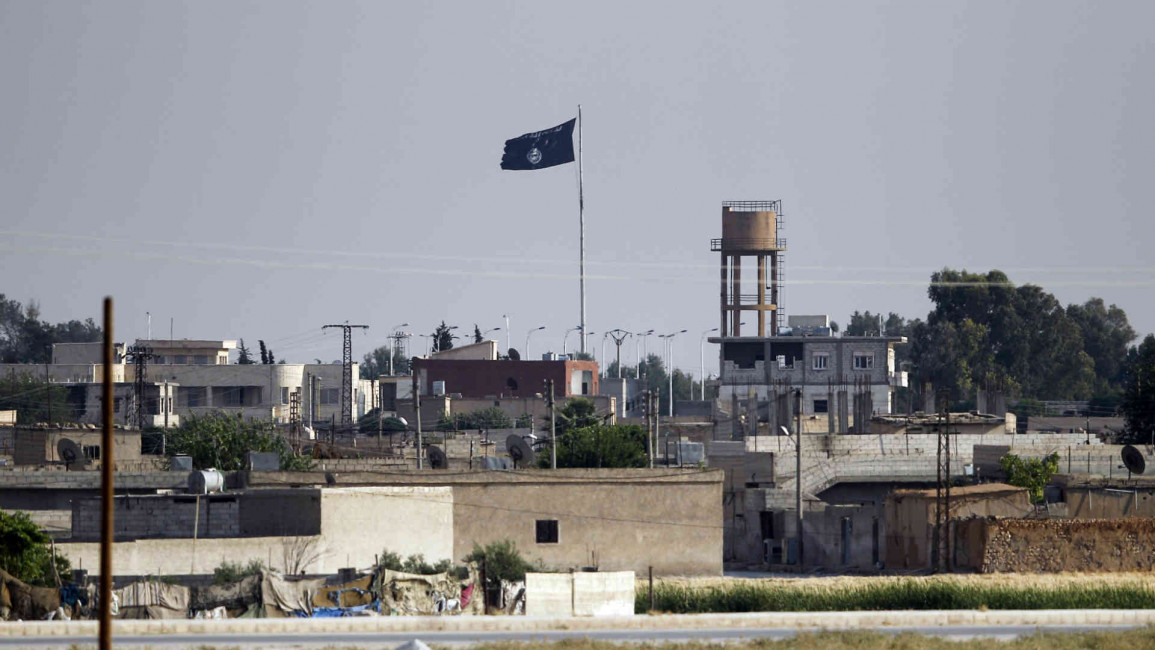Islamic State re-enters Syria's Idlib after clashes with Hayat Tahrir al-Sham
Islamic State re-enters Syria's Idlib after clashes with Hayat Tahrir al-Sham
After several days of clashes, IS recaptures villages in Syria's Idlib province, four years after they were first expelled, as Russian airstrikes in the province continue.
2 min read
IS have reportedly recaptured a string of villages in northern Syria [Getty]
The Islamic State group has re-taken territory in Syria's Idlib province, nearly four years after being expelled from the region, a monitor reported on Saturday.
The extremist group captured the Idlib village of Bashkun as well as several others after days of clashes with a rival group, Hayat Tahrir al-Sham, according to the Britain-based Syrian Observatory for Human Rights. IS were also reported to have captured the villages of al-Khalidiyah, Balil and Huwwayis Umm Jurn.
The capture of these villages puts IS back in Syria's northwestern Idlib province four years after it was first expelled after battles with rival extremist groups.
IS' resurgence comes after near collapse of the so-called "caliphate", which saw the group lose the key cities of Mosul and Raqqa, where it had declared the de facto capital in 2014.
The Islamic State group now holds only patches of territory in north west Syria. At their peak in 2014, the group controlled a territory as large as Italy, with a combined population of seven million.
On Saturday, Iraqi Prime Minister Haider al-Abadi declared the "end of war against Daesh (IS)" in Iraq, after government forces secured the entire Iraqi-Syrian border.
The recapture of Bashkun by IS contradicts statements made earlier this week by the Russian foreign ministry, who announced it had succeeded in its mission in support of the Syrian regime to oust IS militants, and that the country was "completely liberated".
Pro-Assad Russian forces have ruthlessly been targeting the rebel and extremist groups that still occupy territory in the north west of Syria. A Russian airstrike in southern Idlib on Friday killed six civilians, including children.
The Syrian conflict began when the Baath regime, in power since 1963 and led by Assad, responded with military force to peaceful protests demanding democratic reforms during the Arab Spring wave of uprisings, triggering an armed rebellion fuelled by mass defections from the Syrian army.
According to independent monitors, hundreds of thousands of civilians have been killed in the war, mostly by the regime and its powerful allies, and millions have been displaced both inside and outside of Syria.
The brutal tactics pursued mainly by the regime, which have included the use of chemical weapons, sieges, mass executions and torture against civilians have led to war crimes investigations.


![President Pezeshkian has denounced Israel's attacks on Lebanon [Getty]](/sites/default/files/styles/image_684x385/public/2173482924.jpeg?h=a5f2f23a&itok=q3evVtko)



 Follow the Middle East's top stories in English at The New Arab on Google News
Follow the Middle East's top stories in English at The New Arab on Google News


